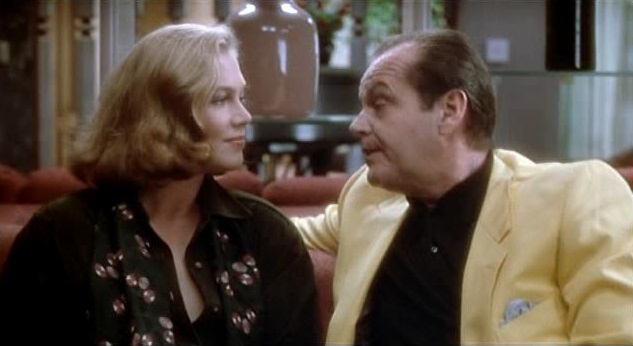| Academy Award Nominations and Winners: |
| Best Picture |
| Best Director: John Huston |
| Best Actor: Jack Nicholson |
| ★ | Best Supporting Actress: Anjelica Huston |
| Best Supporting Actor: William Hickey |
| Best Adapted Screenplay: Richard Condon & Janet Roach |
| Best Costume Design: Donfeld |
| Best Film Editing: Rudi Fehr & Kaja Fehr |
|
| Golden Globe Nominations and Winners: |
| ★ | Best Picture (Musical/Comedy) |
| ★ | Best Director: John Huston |
| ★ | Best Actress (Musical/Comedy): Kathleen Turner |
| ★ | Best Actor (Musical/Comedy): Jack Nicholson |
| Best Supporting Actress: Anjelica Huston |
| Best Screenplay: Richard Condon & Janet Roach |
|
| Other Awards: |
| Writers Guild of America: Best Adapted Screenplay |
| New York Film Critics Circle: Best Picture; Best Director; Best Actor (Nicholson); Best Supporting Actress (Huston) |
| Los Angeles Film Critics Association: Best Supporting Actress (Huston) |
| National Society of Film Critics: Best Director; Best Actor (Nicholson); Best Supporting Actress (Huston) |
| National Board of Review: Best Supporting Actress (Huston) |
| British Academy Awards (BAFTAs): Best Adapted Screenplay |

